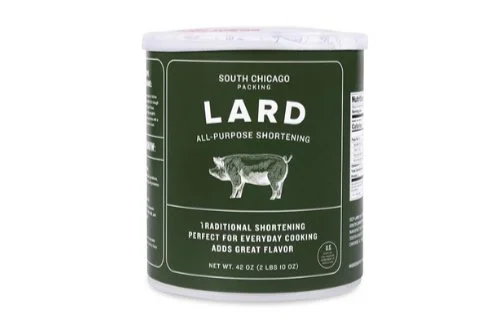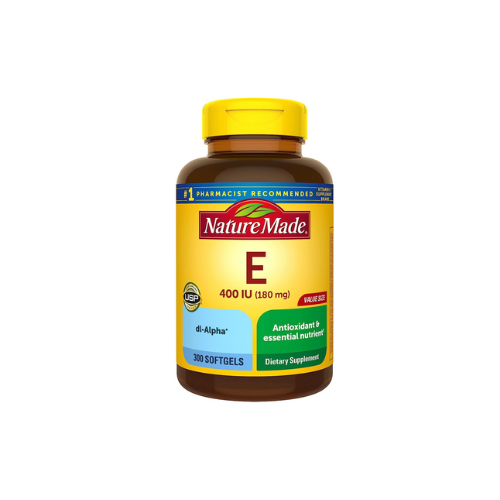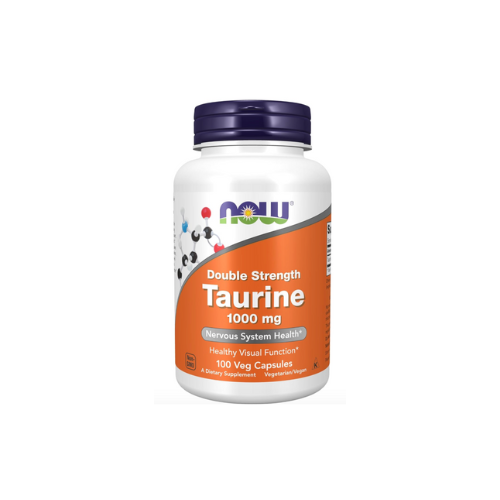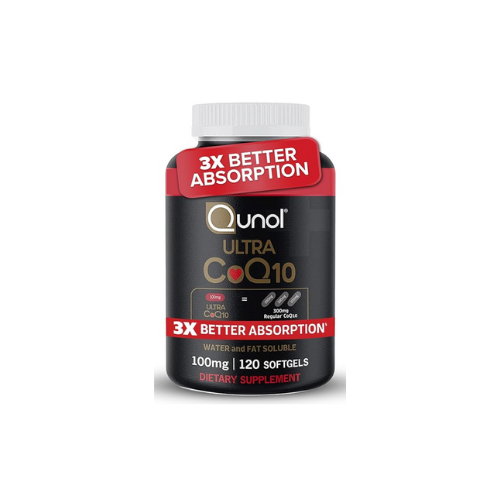Carnivore Diet and Enhancing the Body's Antioxidant Defense
Unveiling Protective Strategies
The Carnivore Diet, as the name suggests, is a dietary regimen that consists entirely of animal products, with a focus on meat consumption. Proponents of this diet argue that it provides all the essential nutrients required for human health, including a significant amount of high-quality protein which is crucial for muscle repair, hormone production, and overall bodily functions. In addition to muscle building and the healing of wounds, the diet is characterized by the inclusion of various animal organs such as liver, spleen, and thymus which are known to be nutrient-dense.
A critical aspect of adopting a Carnivore Diet is its potential impact on the body's antioxidant defense system. Antioxidants play a vital role in neutralizing free radicals, which can cause oxidative stress and damage to body cells. The traditional view that a varied diet rich in fruits and vegetables is necessary to provide these antioxidants is challenged by advocates of the Carnivore Diet. They argue that animal-based foods can supply sufficient antioxidants, alongside other compounds such as zinc, which is vital for immune function and collagen formation.
The bioavailability of nutrients in animal products is an underlying argument supporting the efficacy of the Carnivore Diet in enhancing antioxidant defenses. Since the diet eliminates plant-based foods, it reduces the intake of substances like phytates and fiber, which can bind to certain minerals and reduce their absorption. Thus, the consumption of animal products might lead to more efficient absorption and utilization of nutrients, including those with antioxidant roles. However, it is essential to consider individual health needs and dietary requirements, as a single dietary approach may not be universally appropriate.
Fundamentals of the Carnivore Diet
The Carnivore Diet is a dietary plan that focuses exclusively on the consumption of animal products and byproducts while eliminating plant-based foods. It is defined by its emphasis on meat as the prime source of nutrition.
Defining the Carnivore Diet
The Carnivore Diet is characterized by its singular focus on animal-sourced foods. It excludes all forms of plant-based nutrition, including fruits, vegetables, legumes, grains, nuts, and seeds. Adherents consume a variety of animal proteins and fats, relying on these foods to meet all dietary requirements.
Protein sources: Predominantly from red meat (beef, lamb, pork), poultry, fish, and eggs.
Fat sources: Derived from the meats consumed, inclusive of animal fats like lard and butter. May also include dairy if low in lactose.
Vitamins and minerals: Sourced from the variety of meats consumed; organ meats are particularly prized for their nutrient density.
When it comes to getting the best deals, buying lard online is the way to go!
Core Components of a Meat-Focused Consumption Plan
A core principle of the Carnivore Diet is consuming enough animal protein to support muscle maintenance and overall health. Fat, an essential macronutrient on this diet, is used for energy in the absence of carbohydrates. Vitamins and minerals are obtained from the consumption of diverse meat types and cuts.
Meat: Necessary for providing the body's protein requirements and certain nutrients that are highly bioavailable in meat.
Organ meats: Heralded for their high vitamin (notably vitamins A, D, E, K) and mineral content and often consumed to ensure adequate nutrition.
Fat: Emphasized for energy, satiety, and absorption of fat-soluble vitamins.
Exclusion of carbohydrates and fiber: This diet minimizes carbohydrate intake by eliminating plant foods, which consequently removes fiber from the diet as well.
While the diet provides protein and fat, along with certain minerals, it is notably lacking in vitamin C and fiber—nutrients traditionally obtained from plant sources. Proponents suggest that lower amounts of vitamin C are needed when following a high-meat diet because of reduced oxidative stress. However, nutrition experts may raise concerns about the long-term health implications of excluding dietary fiber and carbohydrates.
Nutritional Advantages and Challenges
The carnivore diet emphasizes the consumption of animal products which offer high bioavailability of certain nutrients, yet it also carries the risk of potential deficiencies due to the exclusion of plant-based foods.
Protein and Fat Bioavailability
The carnivore diet is rich in protein, key for muscle building and repair, as well as collagen synthesis, an essential component of connective tissues. The diet's focus on animal products ensures a high intake of bioavailable iron, crucial for oxygen transport in the blood, and zinc, important for immune function and wound healing. Fats from animal sources provide a concentrated energy source and are necessary for the absorption of fat-soluble vitamins.
Proteins: Complete amino acid profile facilitating muscle repair.
Fats: High in saturated and monounsaturated fats from animal sources.
Vitamin and Mineral Intakes
Animal-based foods are rich in vitamins like preformed vitamin A, found abundantly in the liver, which is crucial for vision, immune function, and skin health. Unlike the provitamin A found in plant sources, preformed vitamin A can be readily used by the body. The diet also typically provides significant amounts of fat-soluble vitamins, though it lacks carotenoids, phytonutrients found in plants that the body can convert into vitamin A.
Vitamin/Mineral, Source in Carnivore Diet, and Importance:
Vitamin A
Source: Liver and other organ meats
Importance: Essential for vision, immune function, and skin health.
Zinc
Source: Meat and shellfish
Importance: Supports immune function, wound healing, and DNA synthesis.
Iron
Source: Red meat
Importance: Crucial for oxygen transport and energy production.
Potential Nutrient Deficiencies
A strict carnivore diet excludes certain food groups that could lead to nutrient deficiencies over time, potentially resulting in conditions like scurvy, due to a lack of vitamin C. The absence of plant-based foods means a lack of dietary fiber, which may impact digestive health. Furthermore, there is a concern about inadequate intake of antioxidants if animal products do not sufficiently replace the variety of nutrients found in a more diverse diet.
Vitamin C: Usually obtained from fruits and vegetables; deficiency can lead to scurvy.
Fiber: Absent in animal products; necessary for healthy digestive function.
Antioxidants: Limited in a diet absent of plant-based foods; essential for preventing oxidative stress.
For the most extensive selection, I suggest buying vitamin C and fiber supplement online!
Health Outcomes of the Carnivore Diet
The Carnivore Diet focuses on intake of primarily animal products and is associated with various health outcomes. These outcomes relate specifically to inflammation and immune function, weight management, and risks or benefits concerning chronic diseases.
Effects on Inflammation and Immune Function
The Carnivore Diet may modify inflammatory markers and influence immune responses. Some studies suggest a high intake of animal proteins can lead to reduced levels of certain inflammatory markers due to a state of ketosis. However, others argue that a lack of dietary fiber from plant sources could impair long-term immune function.
Implications for Weight Loss and Muscle Gain
Individuals on the Carnivore Diet often report initial weight loss, which can be attributed to the diuretic effect of ketosis and a reduction in calorie intake. The high protein content supports muscle gain, making it a dietary choice for those aiming to increase muscle mass. However, the long-term sustainability of such weight loss is not well-documented.
Connections to Chronic Diseases
The diet's impact on chronic diseases is a subject of debate. It could potentiate risks related to heart health due to an increase in saturated fats and cholesterol. This increase has the potential to raise LDL cholesterol levels, which is a risk factor for heart disease. Conversely, proponents claim benefits for blood sugar regulation, suggesting a potential positive effect for those with diabetes. The absence of plant-based antioxidants raises concerns about the diet's ability to combat oxidative stress, which is linked to aging and cancer.
Carnivore Diet and Antioxidant Defense
The Carnivore Diet omits plant-based sources of antioxidants, making the body's endogenous mechanisms critical. This section explores how such a diet interacts with the body's own antioxidant systems and the role, if any, exogenous antioxidants play within this dietary context.
Role of Endogenous Antioxidant Systems
The human body is equipped with a sophisticated endogenous antioxidant system to combat oxidative stress. Within this system, glutathione plays a central role as a powerful intracellular antioxidant. The body synthesizes glutathione naturally, and its production is influenced by the availability of its precursor amino acids, which are abundant in a carnivore diet due to high meat consumption. Uric acid, another endogenous antioxidant, is produced during the metabolism of purines found in meat. While uric acid has antioxidant properties, its high concentration can lead to gout and kidney stones, thus it must be kept in check.
Exogenous Antioxidants and the Carnivore Diet
Exogenous antioxidants such as polyphenols, beta-carotene, and melanoidins are typically absent from the Carnivore Diet as they are found in plant foods. However, certain cooked meats can provide melanoidins, compounds with antioxidant properties formed during the Maillard reaction. Despite the lack of vegetable and fruit-sourced antioxidants, some proponents of the diet argue that the reduced metabolic burden from plant antinutrients may diminish the need for dietary antioxidants. The diet's emphasis on overall reduction in inflammatory processed foods could potentially lower oxidative stress, although this perspective is debated and not widely supported by empirical research.
Strategic Food Choices Within the Carnivore Diet
Within the carnivore diet, making strategic food choices can enhance the body's antioxidant defense. These choices involve opting for high-quality meats and diversifying the range of animal-based foods to maximize nutrient intake.
Selecting High-Quality Meats
Beef: When selecting steak, one should focus on grass-fed, grass-finished cuts which may have a higher content of omega-3 fatty acids and antioxidants compared to grain-fed beef.
Poultry: For chicken and turkey, one must consider sourcing from farms that ensure organic, free-range practices to improve the quality of meat and potentially reduce the intake of unwanted antibiotics or hormones.
Fish: Salmon, particularly wild-caught, is rich in omega-3 fatty acids and selenium. Similarly, cod and oysters provide a unique profile of minerals, with oysters being an excellent source of zinc.
Diversifying Animal-Based Nutrient Sources
Dairy: Incorporating milk, cheese, and other full-fat dairy products adds vitamin D and calcium to the diet. Choosing raw and unpasteurized dairy products can enhance their nutrient profile.
Eggs: Eggs are incredibly nutrient-dense, supplying high-quality protein and choline, an essential nutrient for liver function.
Bone Broth: Regularly consuming bone broth offers glycine and collagen, which support the health of skin, hair, nails, and joints.
To summarize, within the carnivore diet, one should carefully select high-quality cuts of meats and incorporate a variety of animal-based foods to increase the diet's nutrient density. This strategic approach is crucial for providing the body with essential nutrients while adhering to the dietary framework of the carnivore diet.
Daily Implementation and Meal Planning
Incorporating the carnivore diet into daily life involves thoughtful planning of meals and maintaining proper hydration and electrolyte balance to support antioxidant defenses.
Constructing a Complete Carnivore Meal Plan
A well-structured carnivore meal plan focuses on sourcing high-quality animal products while ensuring nutritional adequacy. One might consider starting their day with a breakfast comprised of scrambled eggs and bacon for a balance of fat and protein. Lunch could include a chicken breast with melted cheddar cheese, providing both protein and fat-soluble vitamins. For dinner, a portion of organ meat pie could serve as an excellent source of iron and vitamin B12.
Three-Day Carnivore Diet Meal Plan:
Day 1
Breakfast: Scrambled eggs with bacon
Lunch: Chicken breasts topped with cheddar cheese
Dinner: Organ meat pie
Day 2
Breakfast: Pork sausage and cheese omelette
Lunch: Pure Chicken Caesar (no croutons)
Dinner: Ham steak
Day 3
Breakfast: Smoked salmon and sausage patty
Lunch: Turkey burger topped with a fried egg
Dinner: Pork chops cooked in butter
This pattern can be followed, varying the types of meats and cuts to prevent nutrient deficiencies and to keep the meal plan diverse and palatable.
Hydration and Electrolyte Balance
Hydration plays an essential role in a carnivore diet as it can influence kidney function and the body's electrolyte balance. Individuals should aim to drink water consistently throughout the day. Water intake can come from plain water, bone broth, or through moisture in the consumed meat.
Ensuring adequate electrolyte balance, particularly for sodium and potassium, is crucial since the carnivore diet excludes conventional sources of these electrolytes. One can season their meals with ample salt for sodium and consume meats like salmon that are naturally high in potassium. It is necessary to monitor the body’s response and adjust the intake accordingly to ensure electrolyte levels remain optimal.
Water: It is recommended to consume water steadily throughout the day. The exact amount will vary, but a baseline of eight 8-ounce glasses (about 2 liters) of water per day is a commonly suggested starting point.
Sodium and Potassium: Add salt to meals to ensure sufficient sodium intake. Opt for meats like salmon for a natural source of potassium. Adjust as needed based on individual requirements and response.
Maintaining this balance will help support the body's antioxidant defenses and overall function while adhering to a carnivore diet.
The Carnivore Diet in Context
The Carnivore Diet emphasizes consuming animal-based foods exclusively, while dismissing plant-based nutrients. This section places the diet within a broader nutritional framework and considers its wider societal implications.
Comparing Carnivore to Other Dietary Patterns
Other dietary patterns, such as omnivorous, vegetarian, or vegan diets, incorporate a balance of vegetables, fruits, grains, nuts, seeds, and legumes. These foods are sources of essential nutrients, including dietary fiber, vitamins, and antioxidants. Dairy, when included, often serves as a source of calcium and protein. In contrast, the Carnivore Diet excludes these plant-based foods and focuses solely on animal protein and low lactose dairy.
The ketogenic diet, while also low in carbohydrates like the Carnivore Diet, permits consumption of certain plant-based foods, aiming for a state of ketosis. A typical ketogenic plate may include leafy greens and non-starchy vegetables alongside meats and cheeses, while the Carnivore Diet would limit the meal to animal products only.
Social and Environmental Considerations
Socially, the Carnivore Diet differs significantly from more typical dietary patterns which often highlight the social importance of sharing a variety of foods. Adhering strictly to an all-meat regimen can impact dining experiences and cultural practices involving food.
Environmentally, diets high in meat consumption, like the Carnivore Diet, raise concerns over sustainability. Meat production has a notable carbon footprint when compared to plant cultivation. Diets rich in plant-based foods, conversely, are often promoted as being more environmentally sustainable due to lower greenhouse gas emissions and reduced land use.
Addressing Misconceptions and Criticisms
In this section, the prevalent misconceptions and criticisms regarding the carnivore diet and its impact on the body's antioxidant defenses are scrutinized, focusing particularly on health concerns and the interplay between scientific data and anecdotal claims.
Common Health Concerns
Cholesterol and Saturated Fat: The carnivorous diet, rich in animal products, raises concerns about high cholesterol and saturated fat intake. However, recent studies suggest that the relationship between dietary cholesterol, heart disease, and overall health risk is more complex than previously thought. It is important to note that the body’s cholesterol levels are influenced by many factors, including genetics, and not solely by dietary intake.
Deficiencies: A major criticism of the carnivore diet is the risk of nutritional deficiencies, specifically in vitamins and minerals typically abundant in plant foods. For instance, vitamin C is scarce in animal products, but organ meats such as liver and spleen can provide this essential nutrient. Critics opine that deficiencies could lead to serious health issues, but supporters argue that the diet fulfills all necessary requirements when including a variety of animal foods.
Supplementation: Some argue that strict adherence to a solely animal-based diet necessitates supplementation to mitigate potential deficiencies. Proponents counter that through a strategic selection of organ meats and other animal products, the body’s needs for micronutrients can be adequately met without the need for additional supplements.
Balancing Science and Anecdotal Evidence
In discussing the carnivore diet, it is imperative to balance established scientific research with anecdotal evidence. While numerous personal accounts extol the virtues of the carnivorous diet in enhancing antioxidant defenses and resolving various health issues, these assertions must be weighed against the breadth of scientific literature.
Anecdotal Evidence: Individuals have reported improved health markers and alleviation of certain conditions when on the carnivore diet, citing its simplicity and the purported benefits of consuming only animal products. However, such evidence, though compelling, cannot supplant the extensive research required to substantiate these claims.
Scientific Research: Controlled, peer-reviewed studies are critical in unveiling the long-term implications of the carnivore diet on cholesterol levels, potential imbalances in fats, and the risk of chronic diseases. Moreover, science provides a framework to understand how eliminating certain food groups might affect antioxidant defenses and overall health.
It is the synthesis of scientific data and anecdotal narratives that informs the ongoing debate surrounding the carnivore diet, challenging assumptions while encouraging comprehensive analysis of its efficacy and safety.
Practical Tips and Considerations
When adopting a carnivore diet, individuals must be aware of their body's antioxidant needs and the potential for certain side effects. Ensuring adequate intake of essential nutrients and managing side effects are key for a smooth transition and sustainable approach.
Supplements and Complementary Nutrients
While the carnivore diet is rich in protein and certain nutrients, it lacks several antioxidants present in plant foods. Therefore, one may consider supplementing with vitamins E and C, which are potent antioxidants not typically found in high amounts in animal products. Additionally, a conscious effort to select organ meats can provide a broader range of nutrients.
Vitamin C: While often associated with fruits, Vitamin C can be found in organ meats such as liver. If one does not incorporate these into their diet, a Vitamin C supplement may be beneficial.
Vitamin E: Often missing in muscle meats, supplementing with Vitamin E can help fill the gap.
Taurine and Coenzyme Q10 (CoQ10) are other valuable supplements that support the body’s antioxidant defenses. Both are found in animal tissues, but supplementation can ensure optimal levels.
Supplement and Purpose:
Vitamin C
Purpose: Supports immune function and acts as an antioxidant.
Vitamin E
Purpose: Protects cells from oxidative stress.
Taurine
Purpose: Supports metabolic processes and acts as an antioxidant.
CoQ10 (Coenzyme Q10)
Purpose: Aids in energy production and helps reduce oxidative damage.
Ensuring that the body maintains adequate glucose levels is also key for those on a strict carnivore diet, as it typically lacks direct carbohydrate sources. The body can produce glucose via gluconeogenesis from protein, but this is an area to monitor, especially for individuals with higher energy demands.
Skip the lines and order your vitamin E, taurine, and CoQ10 online for a stress-free shopping experience!
Dealing with Side Effects and Adjustments
Transitioning to a carnivore diet may lead to side effects concerning the digestive system. One common issue is constipation, attributed to the lack of dietary fiber. To mitigate this, individuals can:
Increase the consumption of fatty cuts of meat to promote bowel movement.
Drink ample water to aid digestion and help prevent constipation.
Introduce bone broth that contains collagen and amino acids, aiding the digestive lining.
Moreover, dietary adjustments might be necessary based on individual responses. One should assess their tolerance and adjust the intake of different animal products accordingly. For example, if someone notices digestive discomfort after consuming dairy, they should consider reducing or eliminating dairy from their diet.
Listen to the body: If experiencing fatigue, it might indicate the need for more fats or a potential imbalance in electrolytes.
Adjust meat types: Some individuals may find poultry and fish easier to digest initially compared to red meats.
Individuals should note these points and be proactive about nurturing their antioxidant defenses and managing any side effects for a balanced approach to the carnivore diet.
Conclusion
In summary, the carnivore diet, centered on animal products, provides substantial protein, an essential macronutrient for various bodily functions including muscle building and wound healing. While grass-fed beef and organ meats such as thymus and spleen can contribute to vitamin C intake, the diet's adherence to only animal protein raises concerns regarding the body's antioxidant defenses.
Antioxidants play a crucial role in neutralizing harmful free radicals, which if unchecked can contribute to oxidative stress and cellular damage. Traditional sources of antioxidants are predominantly found in fruits, vegetables, and whole grains – foods excluded from a strict carnivore diet.
Research suggests omnivorous diets, inclusive of both plant and animal foods, may induce an oxidative environment in endothelial cells that stimulates nitric oxide production and antioxidant defense. The NRF2/HO-1 pathway, a primary component of cellular antioxidant response, can be modulated by dietary practices.
Here are key takeaways related to the carnivore diet and antioxidants:
Protein intake is significantly high, which has its own systemic benefits.
The inclusion of select animal organs may provide some level of vitamins, including vitamin C.
The absence of traditionally recognized sources of antioxidants might limit the body's ability to combat oxidative stress.
The impact on long-term health outcomes requires more research to fully comprehend.
Those considering this diet should weigh these factors and monitor health indicators closely. Consultation with healthcare professionals is advised to tailor dietary choices to individual health needs and to ensure nutritional adequacy.

















